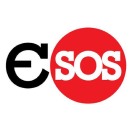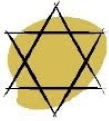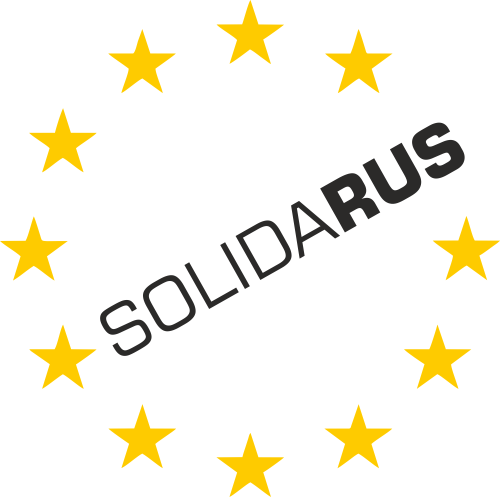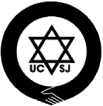The Kremlin’s Political Prisoners: #MoscowElectionCrisis Continues
Over the last weekend, as the Kremlin continued its crackdown on recent protests calling for free elections in the city, police in Moscow arrested 1,001 demonstrators, according to independent monitoring group OVD-info.
Over the last weekend, as the Kremlin continued its crackdown on recent protests calling for free elections in the city, police in Moscow arrested 1,001 demonstrators, according to independent monitoring group OVD-info.
The rally had been banned by Russian authorities in a move to quell the ongoing protest movement that has seen tens of thousands take part over the past four weeks. Anger is centered on the authorities’ decision to bar opposition candidates from participating in the upcoming Moscow City Council elections – despite the fact they collected the minimum 5,000 signatures needed to run.
Officials claim that many signatures were invalid, disqualifying the candidates from standing for election. But protestors remain unconvinced, saying the exclusion of opposition candidates is a deliberate, political suspension of democracy.
The government has been fierce in its response to opposition of this form. While protests remained peaceful and orderly, the authorities unleashed OMON and heavily armed riot forces of Rosgvardia, who have brutalized thousands, including children, the disabled and the elderly.
The violent response has been directed not just at civilian protestors, but at opposition candidates too.
- Yulia Galyamina, municipal deputy and unregistered City Duma candidate, was jailed for 10 days, then apprehended immediately as she walked out of jail, and sentenced to another 15 days. Hundreds of scientists, teachers and journalists signed an open letter demanding to reconsider the decisions on the refusal of Yulia Galyamina and other candidates to register for the ballot;
- Konstantin Yanskauskas, unregistered City Duma candidate, was first sentenced to seven days in jail, then re-arrested, and given another 10 days;
- Ilya Yashin, the head of Krasnoselsky municipal district and unregistered City Duma candidate, was first jailed for 12 days, then re-arrested, and given another 10 days;
- Alexei Navalny, Russia’s most prominent opposition figure, arrested for 30 days. He fell ill while in the custody of authorities, with symptoms strongly suggesting he was poisoned. His doctors and lawyers were initially denied access when he fell ill, and the size of his guarding convoy tripled. Navalny’s lawyer Olga Mikhailova released a statement from his long-time doctor saying that his symptoms were the result of “an undefined chemical substance;”
- Dmitry Gudkov, independent candidate and unregistered City Duma candidate, former State Duma deputy, is now serving out a 30-day sentence, and he faces future administrative charges when he gets out;
- Vladimir Milov, former deputy minister of energy, Navalny’s economic adviser and Navalny LIVE YouTube channel host who was broadcasting the rally on July 27, has been sentenced to 30 days in jail;
- Ivan Zhanov, a director of the Anti-Corruption Foundation and unregistered City Duma candidate, was first sentenced to 15 days in jail, then re-arrested, and given another 10 days. He’s declared a hunger strike in protest;
- Georgy Alburov, a lawyer at the Anti-Corruption Foundation, was sent to jail for 10 days;
- Mikhail Svetov, the leader of the Libertarian Party of Russia, sentenced to 30 days of imprisonment;
- Mark Galperin, an activist, arrested for 30 days;
- Vadim Korovin, municipal deputy, sentenced to 10 days of imprisonment;
- Oleg Stepanov, a coordinator of Navalny’s Anti-Corruption Movement office in Moscow, arrested for 8 days and immediately re-arrested for 15 days as soon as he was released;
- Lyubov Sobol, an unregistered candidate, was fined 300,000 rubles ($4,590) for her involvement in Moscow’s July 15 rally, and later interrogated as a witness in the city’s criminal investigation into supposed rioting on July 27. The authorities cannot jail Sobol for a misdemeanor offense because she has a child under the age of 14, and Russian law prohibits the jailing of mothers with children who haven’t yet reached this age.
At the same time, police detained nine people on suspicion of “organizing and conducting mass riots” during an opposition rally on July 27: Sergey Abanichev, Vladislav Barabanov, Kirill Zhukov, Yevgeny Kovalenko, Daniil Konon, Alexey Minyailo, Ivan Podkopayev, Samariddin Radzhabov, and Yegor Zhukov. They have been placed in pre-trial custody until September 27. The activists may face up to eight years in prison if convicted:
- Yegor Zhukov, 22, is a student at Moscow’s Higher School of Economics (HSE) and a popular YouTube blogger was also arrested. He is arguably the most high-profile defendant in the “mass unrest” case, with fellow students staging single-person pickets in his support outside the Moscow police headquarters;
- Alexei Minyaylo, 34, an associate of rejected opposition candidate Lyubov Sobol’s campaign. Maintains he had not taken part in the July 27 protests, saying “law enforcement officers detained me before I got there;”
- Samariddin Radzhabov, 21, the youngest “mass unrest” suspect, accused of throwing a plastic bottle at a police officer;
- Kirill Zhukov, 28, accused of lifting a police helmet visor;
- Ivan Podkopayev, 25, thought to have brought a knife and hammer in his backpack to the protest;
- Yevgeny Kovalenko, 48, accused of throwing a trash can at a riot police officer;
- Sergei Abanichev, 25, accused of throwing a paper cup at a police officer;
- Vladislav Barabanov, 22, declared in court that the case is politically motivated and said “If I start incriminating myself, know that I’ve been tortured;”
- Daniil Konon, 22, accused of “paralyzing traffic” in central Moscow and using violence against authorities alongside other unidentified protesters.
Also, police have arrested a 10th suspect: Sergey Fomin. He is in fact only charged with participating in, not organizing, “riots” on July 27. If convicted, he faces between three and eight years in prison.
On August 1, Samariddin Radzhabov declared a hunger strike to protest the authorities’ allegations, and Kirill Zhukov is also hunger striking.
On August 8, Russian investigators announced that they have frozen more than 100 bank accounts as part of their inquiry into alleged money laundering by members of the Anti-Corruption Foundation. The authorities also carried out a series of raids at FBK’s office and the homes of several staff, and multiple employees have been summoned to the Investigative Committee for questioning.
Since the arrest of Yegor Zhukov, supporters have picketed the Moscow police headquarters daily with banners calling for his release. Four demonstrators were arrested. More than 1,000 people have joined a channel on the messenger app Telegram that coordinates public action in his support. Hundreds have signed an open letter calling on the university leadership to lobby for his freedom.
The “mass unrest” case has prompted Russia’s independent Novaya Gazeta newspaper to launch a petition urging the authorities to put an end to what it called “political terror.” More than 110,000 people have signed it in three days.













